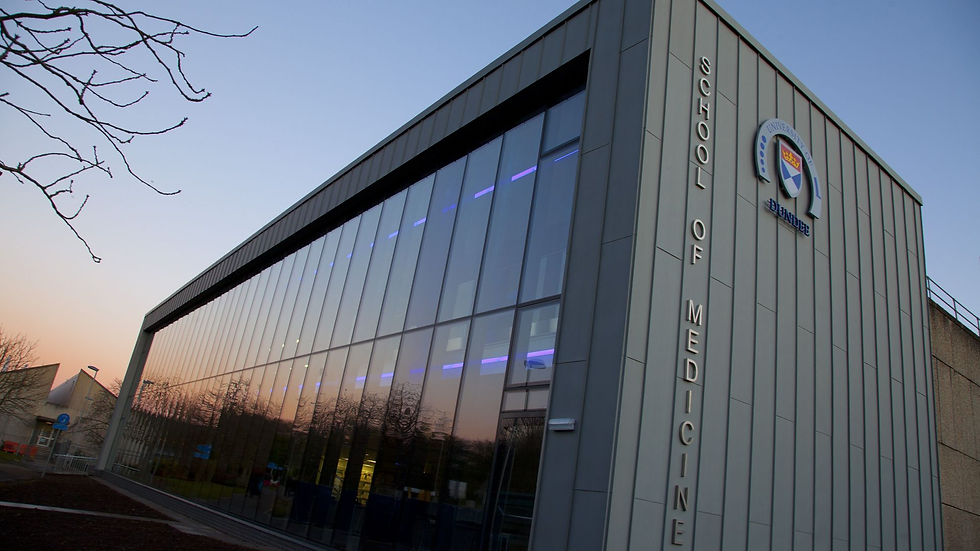Dundee researchers identify world's first potential therapy for Bronchiectasis
- Andrew Batchelor

- Jun 3, 2024
- 2 min read
Millions of people with bronchiectasis could soon benefit from a new investigational therapy called brensocatib thanks to a breakthrough discovered by the University of Dundee and Insmed.
Insmed, a biopharmaceutical company, has announced promising results from its Phase 3 “ASPEN” study. The study revealed that patients treated with brensocatib had significantly fewer lung flare-ups.
Bronchiectasis, a chronic lung disease marked by persistent cough and severe breathlessness, affects around 400,000 people in Europe and millions worldwide. Currently, there are no approved treatments for this condition, making the need for new therapies urgent.
Professor James Chalmers of the School of Medicine, who is lead researcher of the ASPEN trial, expressed his excitement:
I am thrilled that the ASPEN study has demonstrated a statistically significant and clinically meaningful treatment effect for brensocatib, underscoring the impact this investigational therapy may have on patients with bronchiectasis. Today, there is no approved treatment for bronchiectasis and there remains an urgent need for a therapy that can reduce exacerbations. Brensocatib would be the first treatment in its class and could offer a completely new approach to managing this difficult-to-treat patient population, heralding a new era in clinical management of bronchiectasis. There are millions of bronchiectasis patients around the world, currently without an approved therapy. It means so much to know that Dundee’s research into bronchiectasis and the role of inflammation have now contributed to a breakthrough with the potential to help so many people. This is a great day for patients.
The University of Dundee, a leading research center for bronchiectasis, has been at the forefront of this research. Despite some genetic links, the causes of bronchiectasis remain largely unknown.
Insmed plans to seek regulatory approval for brensocatib, aiming for availability by mid-2025 in the U.S. and 2026 in Europe and Japan.
This breakthrough offers new hope to millions of bronchiectasis patients awaiting effective treatment.
Sources











Comments